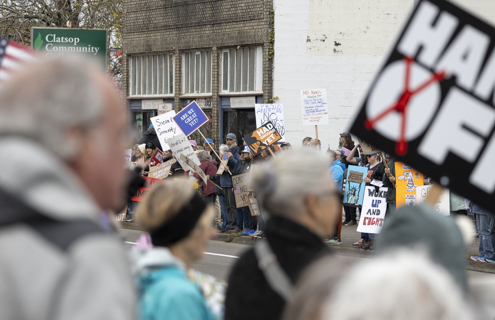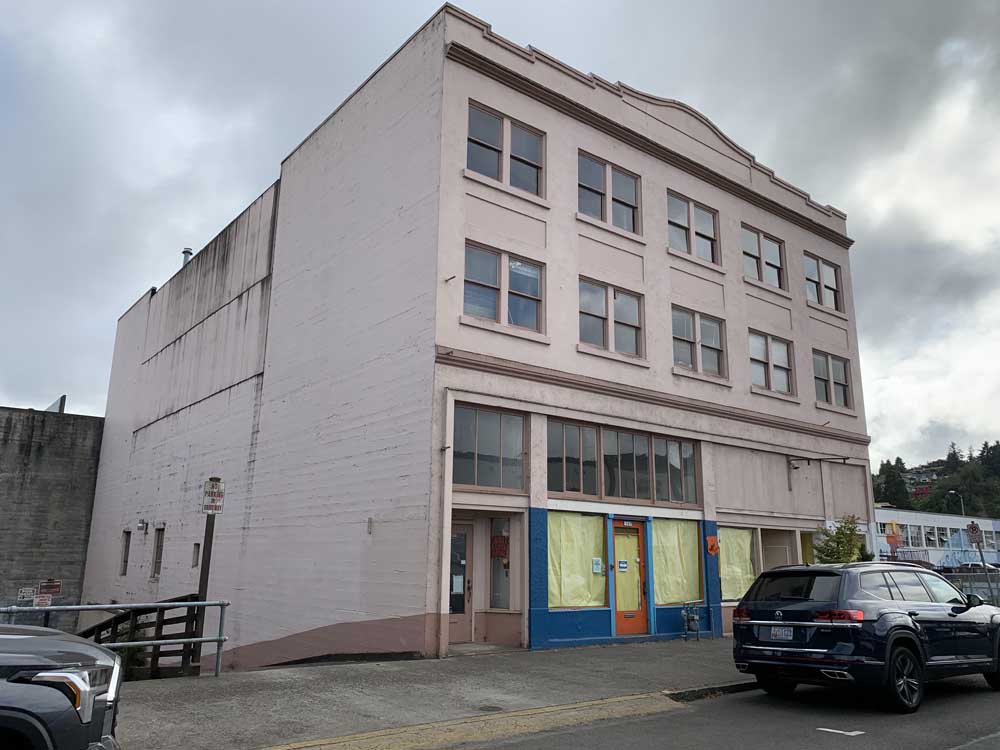Cosmetology students back, but problems are unabated
Published 5:00 pm Monday, July 16, 2007
Students at Paul Mitchell The School in Astoria planned to return to classes today, following a five-day boycott in protest of ongoing problems and new frustrations at the cosmetology school.
One student, who requested to remain anonymous, said the fledgling stylists were generally sick of “getting screwed.” About 14 students walked out of the program last Tuesday – the day they returned from a summer break – citing up to 20 different concerns.
The Paul Mitchell school nearly lost its license last year following an investigation by multiple state agencies. The resulting report cited “a serious breach of safety and sanitation procedures” when “sewage overflowed from the toilets” and students had to clean it up, while weeks later, the soiled carpet had not been replaced or sterilized.
The report also alleged the school was not “financially sound and capable of fulfilling its commitments to students.” The Oregon Department of Education charged owner John Paul DeJoria II and one of his employees with “gross neglect of duty” and questioned whether the school was “experiencing fiscal difficulties and/or poor financial management” – students weren’t receiving books and supplies on time, and bank accounts for financial aid funds had been overdrawn.
Even though DeJoria, who lives in the Portland area, hired an on-site director and has been heading toward improvement, according to ODE, students continue to voice concerns.
On Friday, ODE met with about 14 students to address a list of about 20 problems they had identified, including:
? Instructor(s) smoking in the building;
? Lack of qualified instructors on the salon floor;
? Electricity and safety;
? Inadequate supplies;
? Availability of student files.
Sometimes supplies would run out and “wouldn’t be replaced for weeks or even months,” according to one anonymous student. For example, perming women’s hair requires specific solutions for different hair types to avoid breakage, the student explained. If they were out of one type – and they frequently were – they’d have to substitute the wrong kind.
“We had to keep our mouths shut and make do with what we had,” the student said.
They couldn’t run two hair dryers simultaneously on the same side of the building without tripping a circuit breaker, and access to the fuse box was limited. Several longtime teachers and at least one highly respected instructor had recently announced their resignations or retirements, sparking alarm for beginning stylists already noticing a lack of supervision on the salon floor. “There wasn’t always a (licensed) instructor on the floor when there needed to be,” the student said.
But beauty school pupils were also worried about financial aid for future enrollees.
Many now attending receive federal financial aid; but to provide that, institutions must be accredited. However, the school has dropped accreditation and announced it will no longer offer federal aid. Ray Lindley, ODE director of private schools and specialized programs, said the decision stemmed from problems “cleaning up the files” before the new on-site director, Steven McKee, took over: “He inherited such a big mess.”
The U.S. Department of Education had tightened the flow of federal aid to the school, requiring up-front documentation of students’ eligibility for federal funds because of past problems with record-keeping. While law requires any unused portion of federal aid be returned when a student withdraws from a program, a process that entails detailed records, those records weren’t always kept at Paul Mitchell The School.
Lindley said any students already promised financial support will still receive it in the form of scholarships from the school, but he stressed that anyone who drops out after completing more than half the program would be liable for the “total amount of tuition,” up to $15,000.
Timmi Brushe of Seaside is a former student. She said she completed about 30 percent of the program before she withdrew; as of June 7, she has been out of the school for two years.
But she keeps receiving letters from the school billing her for $3,000, and she’s worried loans may have been drawn down from the federal government that she didn’t use. In addition, she was always asked to cash federal aid checks, take her allowed disbursement and turn in the remaining cash to the school. She doesn’t know what happened after handing over the leftover money.
“My school (tuition) was supposed to be completely covered,” she said. “I’ve had to get a lawyer now to deal with it. Loans were taken out that shouldn’t have been taken out.”
Brushe said she asked to see copies of her student file to prove what she owes but can’t receive documents unless she pays off her outstanding debt.
McKee, the school director, declined to comment.
However, according to current students, record-keeping may remain a problem at the school. It was among the list of issues they presented to the Department of Education.
The anonymous student said files were removed from the downtown Astoria building and kept in Portland, making it difficult to check hours worked and credits earned. But the student also said ODE will now require records to be kept at the school, a demand made Friday, and feels the problems can be fixed.
“Some people are worried it’s just going to happen again,” the student said. “But I think things are going to be resolved.”





